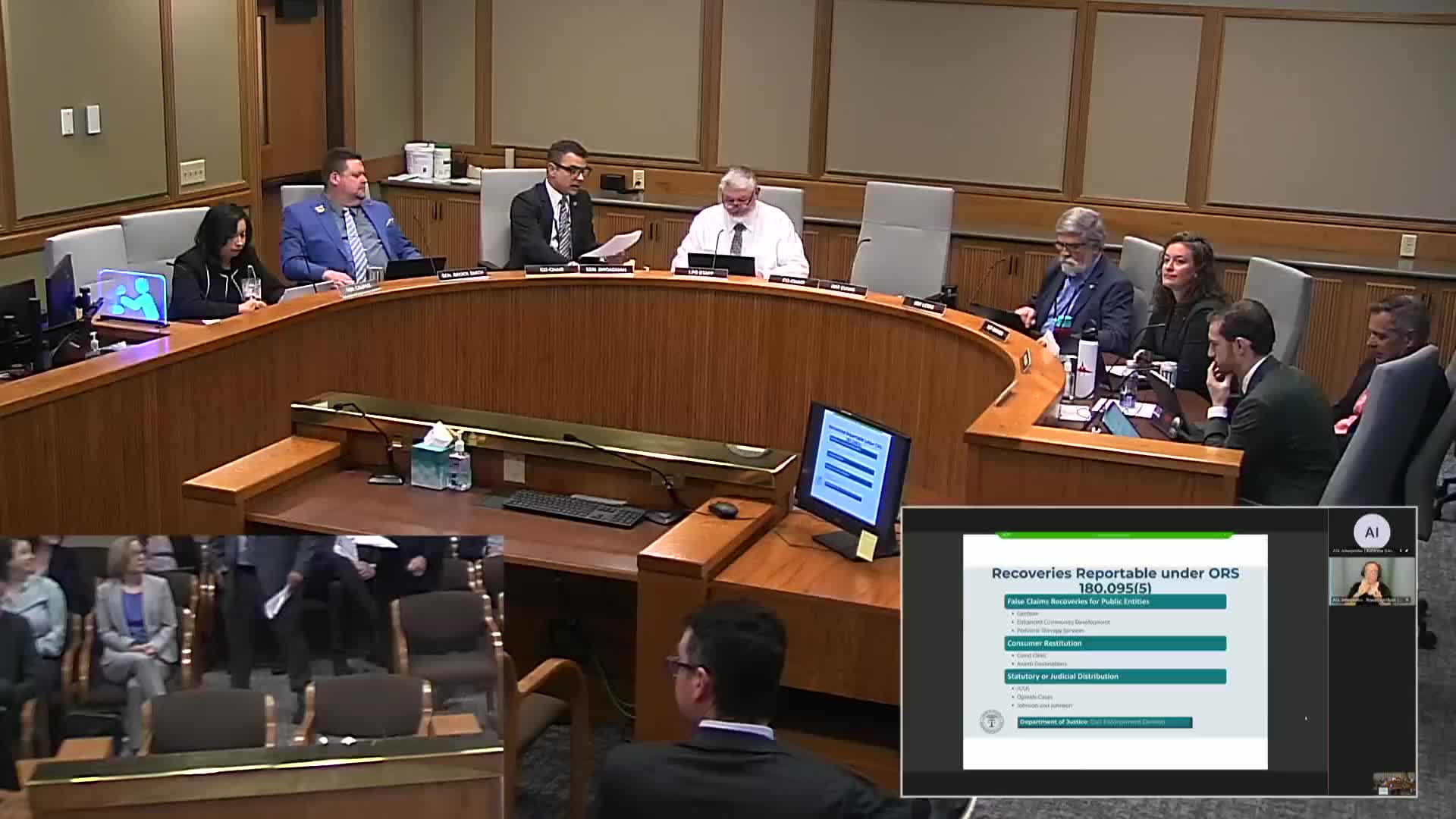DOJ: ICAC investment cut backlog and boosted investigations and arrests; subcommittee acknowledges report
Get AI-powered insights, summaries, and transcripts
Subscribe
Summary
Following a 2024 appropriation of $2.7 million and 14 positions, Oregon DOJ reported faster cyber‑tip processing, more investigations and more arrests in Internet Crimes Against Children (ICAC) work. The subcommittee acknowledged the report and will carry the item to the full committee.
On April 21, 2025, the Public Safety Subcommittee acknowledged an Oregon Department of Justice report on Internet Crimes Against Children (ICAC) that followed the 2024 legislative appropriation to expand the program.
The legislature’s 2024 action — Senate Bill 5701, as cited in testimony and the accompanying budget note — provided $2,700,000 and approval for 14 positions to expand ICAC. Michael Slauson, assistant attorney general and chief counsel of the Criminal Justice Division, said the appropriation funded a supervisory position, multiple special agent positions, two legal support roles, two analyst positions and a prosecutor position. Slauson said the expansion added to five preexisting positions and allowed DOJ to process tips and provide more investigative support to affiliates across Oregon.
Why it matters: National and state law‑enforcement partners report large increases in online exploitation disclosures and cyber tips. Slauson said cyber tips reported to Oregon rose markedly over recent years — “in 02/2017, we had about 1,600 cyber tips. And by 2023, we had nearly 10,000.” He added that new filtering by the National Center for Missing and Exploited Children (NCMEC) reduced lower‑value CSAM referrals in 2024 but also that a distinct category of online enticement and sextortion is rising and is more resource‑intensive.
Operational results DOJ reported for the latter half of 2024 after positions began to be hired: • Referral volume increased 45% comparing H2 2024 to H1 2024. • Investigations increased by 24% in the same comparison; DOJ exceeded its projected growth estimate. • Arrests increased by 55%.
Slauson described reductions in processing backlog for cyber tips: he said processing time dropped from roughly two months at the start of 2024 to 31 days after the first analyst was hired and to “0” after a second analyst was in place. He said the department expects to sustain faster processing but noted continued growth in tip volume could change that.
DOJ cautioned that not all CSAM tips result in immediate arrest; staff typically complete digital forensics before charging unless there is an imminent risk to a child. Slauson also said the department plans to increase follow‑up with affiliate law‑enforcement agencies, provide technical assistance, and expand prevention outreach and training.
Committee action: The DAS CFO and the LFO recommended acknowledging receipt of the ICAC program report. Representative Lewis moved to approve the LFO recommendation; the motion passed and will be carried to the full committee.
